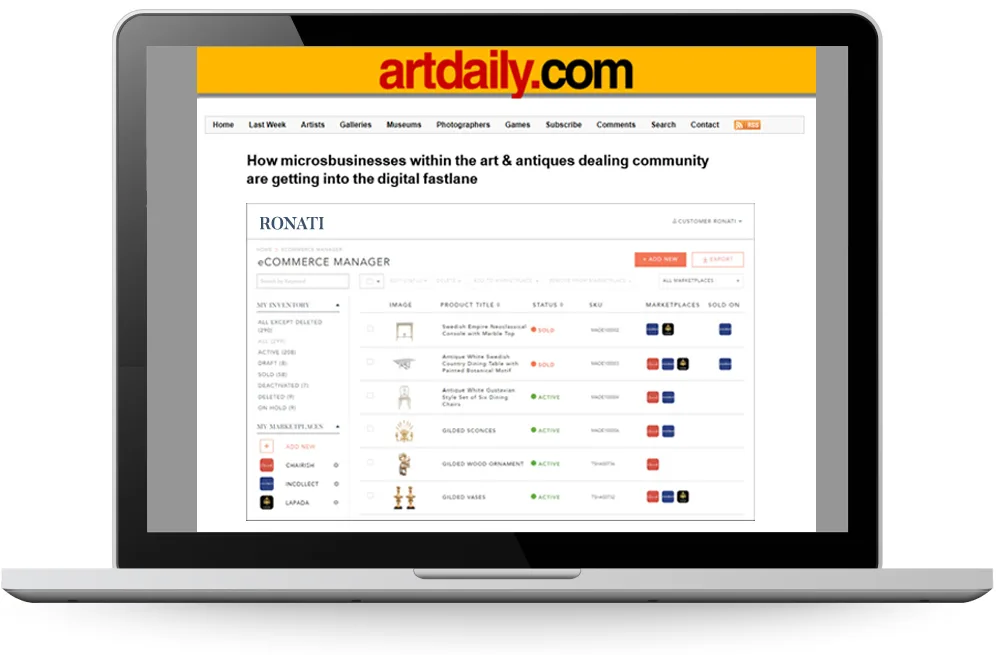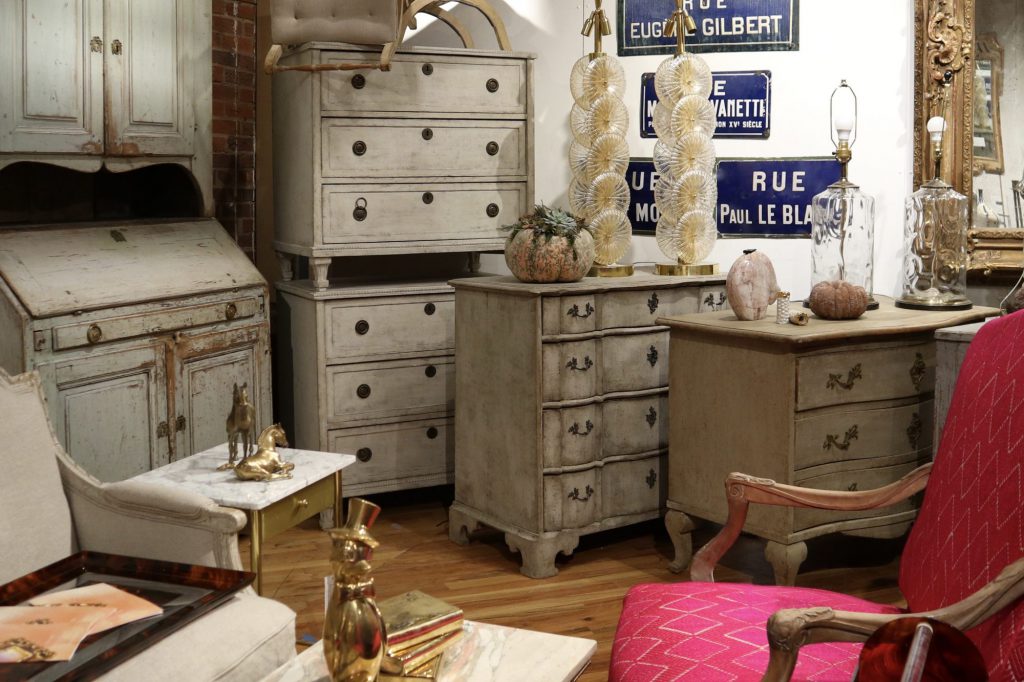Software developer Ronati focuses on leveling up for smaller art & antiques firms as well as helping larger operators reach a global audience of buyers.
Read the entire article on ArtDaily
Companies with extensive support structures in IT, human resources, administration, and other specialist departments face challenges like any other business, but at least they have the backup to deal with them.
The international art and antiques market is overwhelmingly made up of microbusinesses comprising just one or two people or, at most, a small team of less than half a dozen.
So what do they do when it comes to developing opportunities, promoting their brand and meeting an ever-increasing and more complex set of compliance requirements?
Let’s face it, in theory, technology is there to serve us, but all too often it can become our master. This has been one of the most important considerations for Ronati in developing new eCommerce tools and programs for art and antiques dealers. It’s not the technology itself that is important, it is the user. And if the user is short on time and following a tight budget, then the technology must address these issues as priorities. Failure to do so means limiting opportunities.
“Expecting these small businesses to list and manage hundreds and sometimes thousands of items across multiple marketplaces, their website, and social media with spreadsheets or word documents is all but impossible. If you consider the internet like the eCommerce freeway, there are literally no on-ramps for sellers of unique and constantly changing inventory. Others have tried to solve this complicated problem. No one was able to, until now,” says Ronati Founder and CEO Stacey Tiveron. “We created Ronati both with and for dealers to address the technology needs of their business. Our job is to get these sellers not only on the freeway but in the fast lane.”
One of the best ways of judging whether or not you are getting this right is to ask the customer, so that’s what Ronati did, by seeking regular feedback and creating case studies to see what was important in developing and launching the firm’s new eCommerce Manager (eCM), a piece of software that allows art and antiques dealers to post, edit and track their stock across multiple marketplaces and websites from a single location.
This has been essential for dealers like Margaret Schwartz, whose New York, NY-based antiques dealership Modern Antiquarian has been transformed by the eCM in the face of the COVID lockdown.
“Previously we spent hours managing various individual marketplaces, including maintaining our own site and sales,” she says. “Ronati has streamlined an e-commerce management tool that can seamlessly do this all in one place.”
Being able to update sales on one platform across all marketplaces is also essential. This helps dealers avoid disappointing clients who discover that something they are interested in on one platform has already sold on another.
Key to overall success is that the streamlined operation allows dealers to increase the volume of items being fed into each marketplace platform, which in turn makes their business more visible to a much wider audience. And because the system is easy to use and quick, it means that even galleries with only one or two staff can do this without it becoming overburdensome.
Margaret Schwartz has capitalized on this at Modern Antiquarian: “We’ve been able to add more products to marketplaces we already had a presence on. What’s even better, is we’ve been able to join additional marketplaces, further increasing our revenue!”
Read the case study on how Modern Antiquarian increased their sales by expanding to more online marketplaces using the Ronati eCM.
Empowering dealers in this way helps them become more successful, and that’s good for Ronati’s business too, making the whole relationship a virtuous circle.
Describing the eCM as a “lifesaver,” Margaret adds that it has “helped us gain back a tremendous amount of time to focus on the thing we love, antiques, not logistics!
“For me, I don’t know why anybody wouldn’t be on it. I only see benefits.”
Tiveron aims to liberate more dealers in this way: “We’re getting more and more dealers not just on the freeway, but in the fast lane, which gives them the opportunity to conquer the issues that have been holding them back – until now.” she says.





